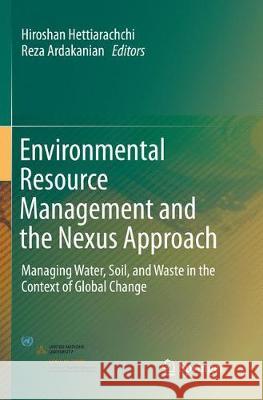Environmental Resource Management and the Nexus Approach: Managing Water, Soil, and Waste in the Context of Global Change » książka
topmenu
Environmental Resource Management and the Nexus Approach: Managing Water, Soil, and Waste in the Context of Global Change
ISBN-13: 9783319803838 / Angielski / Miękka / 2018 / 209 str.
Environmental Resource Management and the Nexus Approach: Managing Water, Soil, and Waste in the Context of Global Change
ISBN-13: 9783319803838 / Angielski / Miękka / 2018 / 209 str.
cena 424,07 zł
(netto: 403,88 VAT: 5%)
Najniższa cena z 30 dni: 421,13 zł
(netto: 403,88 VAT: 5%)
Najniższa cena z 30 dni: 421,13 zł
Termin realizacji zamówienia:
ok. 20 dni roboczych.
ok. 20 dni roboczych.
Darmowa dostawa!
Kategorie:
Kategorie BISAC:
Wydawca:
Springer
Język:
Angielski
ISBN-13:
9783319803838
Rok wydania:
2018
Wydanie:
Softcover Repri
Ilość stron:
209
Oprawa:
Miękka
Wolumenów:
01











